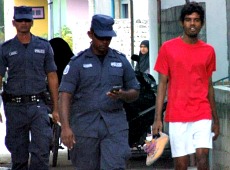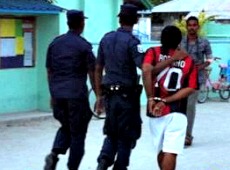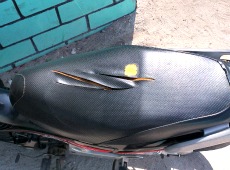The government has come under fire from Progressive Party of the Maldives (PPM) potential presidential candidate Abdulla Yameen, who has claimed institutions are both failing and corrupt.
Speaking at a rally on February 7 to mark the anniversary of former President Mohamed Nasheed’s removal from power, Yameen called for President Mohamed Waheed Hassan Manik to “set things right”, adding that the current government had come to a halt.
Despite PPM being part of the current government coalition, local media reported Yameen as criticising a number of issues he claimed the government was responsible for.
“What we’re seeing today, and it is with sadness I say this, is the current government failing. The institutions are now incapable,” Sun Online quoted Yameen as saying.
Yameen, who is the half-brother of former autocratic ruler Maumoon Abdul Gayoom, further claimed that Maldivians will not believe they have achieved democracy unless laws are properly implemented by the government, local media reported.
“Major crimes are being committed on the streets. Rights are being invaded and violated. We want a clean, bold and a just government. A government with our support.
“Unless laws are being implemented, the Maldivians won’t believe that they have achieved democracy. They won’t believe a dictatorial rule had ended. We don’t see a difference,” local newspaper Haveeru quoted Yameen as saying.
Yameen’s comments come less than one month after the PPM appointed former 30-year ruler Gayoom – who many claim ran the country as a dictator – as its party President.
The PPM presidential candidate further criticised foreign interference with internal issues in the Maldives, claiming that the government was making it possible for foreign parties to do so.
“Foreign countries are interfering with internal issues of the Maldives to a greater extent than we’re comfortable with. The government is giving them that opportunity,” Yameen was quoted as saying in local media.
Yameen’s critical remarks were met with backlash yesterday (February 8), including from the government-aligned Dhivehi Rayyithunge Party (DRP).
DRP Parliamentary Group Deputy Leader Abdullah Mausoom told local media the PPM was willing to take credit for the government’s success, but distanced itself when the government faced criticism.
“If the government achieves something, they’d say it was them, they want to be the ones who sustain the government. But if the government is being harmed in any way, they are not part of it. If the government gets recognised for something, they take credit for it,” he told Sun Online.
Mausoom said that PPM had obstructed the government on two occasions, expressing concern that the party still continues to criticise the government despite the challenges faced due to the obstructions.
Speaking to local media, he said that whilst the budget is the most important part of providing public services, the PPM and Maldivian Democratic Party (MDP) had reduced it by MVR 2 million, and that it would not be “wise” to criticise the difficulties this may cause.
Furthermore, Mausoom claimed that the Executive Oversight Committee (EOC) – currently investigating the Commission of National Inquiry (CoNI) report – is held by a Maldivian Democratic Party (MDP) majority and that this was facilitated by the PPM.
Mausoom said that the former Parliamentary Leader of the People’s Alliance – Abdulla Yameen – had given up the party’s spot in the EOC when he joined the PPM, giving the MDP a majority.
President’s Spokesperson Masood Imad, and Dhivehi Quamee Party Leader Hassan Saeed were not responding to calls from Minivan News at time of press.
Jumhoree Party (JP) Spokesman Moosa Ramiz said he needed to discuss Yameen’s comments with the JP’s leader, resort tycoon Gasim Ibrahim, before giving the party’s official view. Minivan News was awaiting his response at time of press.
Cracks are starting to appear: MDP
Speaking to Minivan News today (February 9), MDP Spokesman Hamed Abdul Ghafoor said Yameen was “expressing discontent” within the government’s ranks, and that cracks were beginning to appear within the coalition.
“There are two issues that seem to disturb them at the moment. The EOC coming up with evidence supporting that there was a coup, and the other being President Nasheed’s court case.
“It is looking like they are also trying to get Nasheed out of the [Presidential elections] race,” Ghafoor said.
In regard to the EOC’s investigation into the CoNI report, Yameen was quoted as saying during Thursday’s rally that the investigation was “determinably illegal” and that it was being spearheaded Parliament Speaker Abdulla Shahid.
The investigation by the Executive Oversight Committee has so far seen senior military and police intelligence figures give evidence alleging that the transfer of power on February 7 “had all the hallmarks of a coup d’etat”, whilst claiming that the final CoNI report published last year had not reflected their input.
Speaking at the rally, Yameen said the government had no legal obligation to cooperate with the EOC in regard to the CoNI investigation, local media reported.
“As Parliamentary Group Leader of PPM, I have told the President that the government does not have to cooperate with the Majlis Committee investigating CoNI Report. The executive shall run according to the legal instruction of the Attorney General and not a Majlis Committee.
“[Parliament Speaker] Abdulla Shahid is now investigating the CoNI Report, and I wonder what he has in mind to do. On behalf of PPM, I would emphatically say that they are undertaking an illegal work. They cannot do it”, Sun Online reported Yameen as saying.


